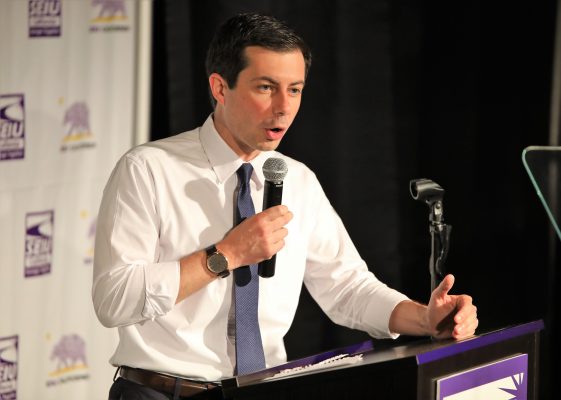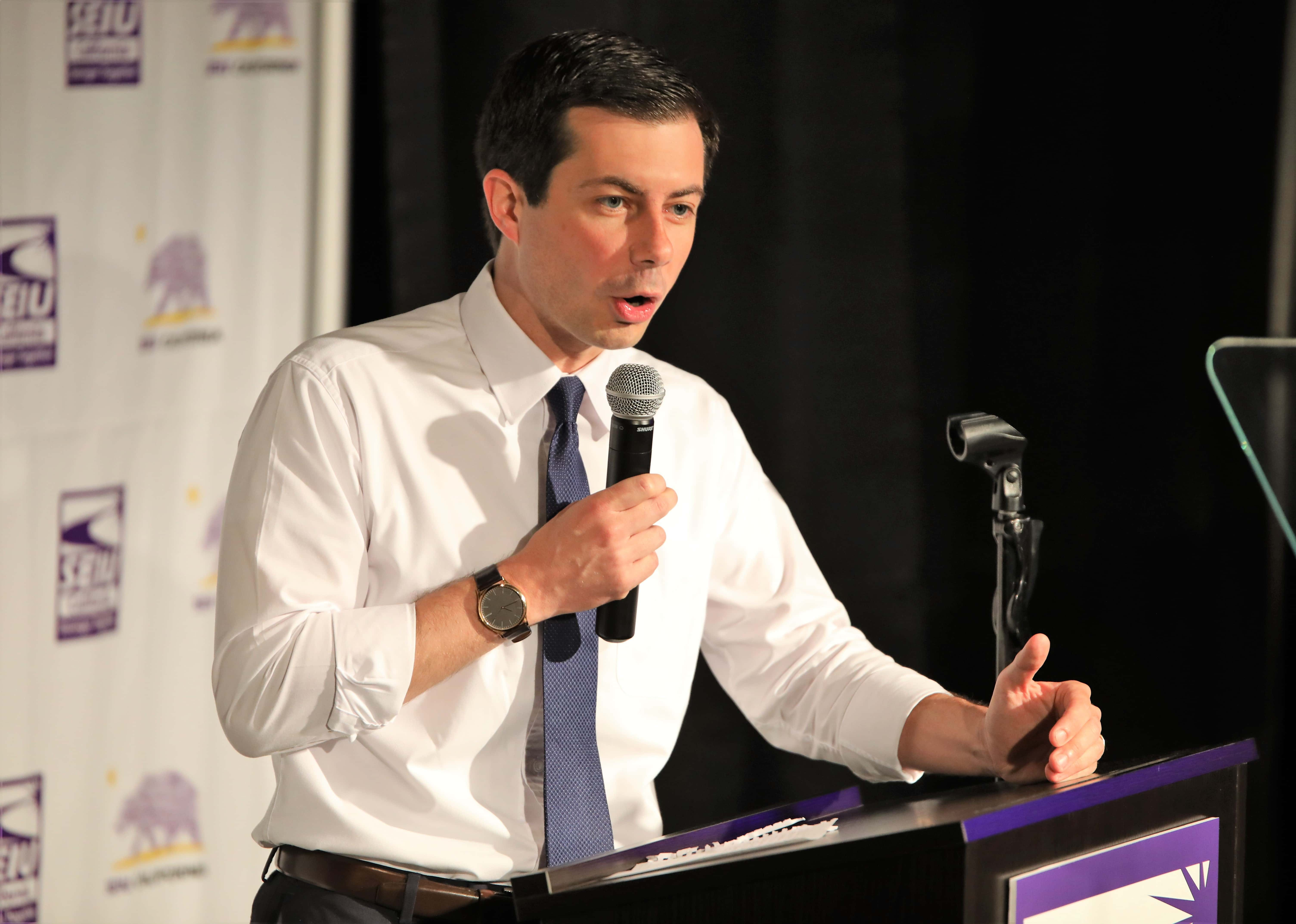
South Bend Mayor Pete Buttigieg speaks to California SEIU workers at an annual breakfast prior to the California State Democratic Party Convention (Photo: Will Bucquoy)
Mike DeWald (@mike_dewald)
South Bend Mayor and Democratic presidential hopeful Pete Buttigieg on Tuesday unveiled a plan for economic development in rural communities across the country.
The plan includes a renewed focus on job training and apprenticeship programs, increased broadband internet access, and investment in farming and agriculture to foster sustainability and conservation in combating climate change.
The plan aims to put a renewed focus on bolstering rural farming and industrial communities which the candidate sees as ‘left behind’ in current economic policy discussions. Buttigieg said the plan was born out of his own experience as the Mayor of South Bend, but is also in response to the impacts on farming and agriculture from President Trump’s trade wars with China and Mexico.
The plan, released to Buttigieg’s campaign website, includes an $80 billion initiative entitled “Internet For All”, which includes expanded access to broadband in rural and underserved communities, an upgrade to 911 infrastructure to ensure rural residents and first responders have adequate connectivity during emergencies, and a promise to restore Net Neutrality to the internet.
Broadband access issues could be especially prescient to Sonoma County, with 9,057 households lacking adequate broadband service under current FCC and USDA baseline standard, roughly 5% of Sonoma County’s population, a majority of which fall in unincorporated areas of the county. Concern is also ongoing about connectivity issues during emergencies like 2017’s Tubbs Fire. Senator Elizabeth Warren also recently released a plan to expand rural broadband access.
The plan also calls for a $50 billion investment over a decade to support research in in new soil technologies to combat climate change as well as expanding environmental stewardship programs to pay farmers for conservation, and the established of ‘Resilience Hubs’ to provide climate resilience data, tools, and support to local communities.
Buttigieg looks to create a national network of apprenticeships as well as offering companies increased tax deductions to pay for 50% of the cost of interns who live in rural or underserverved areas. The plan also looks to place a new emphasis on manufacturing partnerships as well as expanding and connecting Regional Innovation Clusters through grants.
“This is a make or break moment in our nation’s history, and we need to meet this moment with the urgency it requires,” said Buttigieg in a statement released along with the plan, “With a renewed dedication to rural communities, smart investments, and innovative ideas, rural America can not only meet our national challenges—rural America can lead the way in tackling them.”
The plan comes as a continuation of Buttigieg’s hyper focus on policy giving attention to the country’s rural communities. Last week, the candidate released a rural health plan included a new focus on tele-medicine, attracting new doctors to rural areas though mechanisms like increased MediCare reimbursement rates, as well as an application of Buttigieg’s “MediCare for All Who Want It” plan.
Buttigieg has seen some reasons for optimism in California. Fundraising data in July showed that the South Bend Mayor raised more money than any other candidate, taking in over $3.5 million from California and around $1.5 million specifically from the Bay Area. Despite the powerhouse fundraising totals, Buttigieg has struggled to find his footing in the polls, with the most recent KGTV/SurveyUSA poll putting him at just 6% of the vote.


